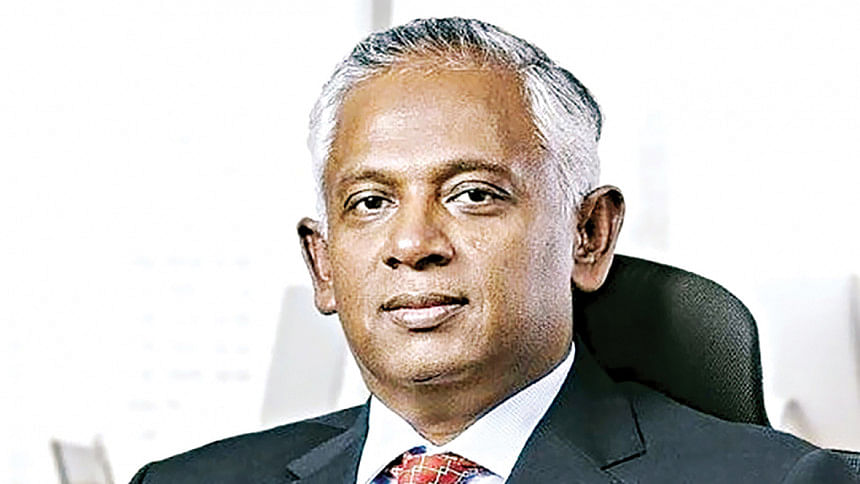Old roots, new realities

In our days, one landline served the entire moholla – and half the neighbourhood aunties answered your calls before your parents did. If you misbehaved, Amma's flying chappal had GPS-guided accuracy – one silent glare, one clean hit. Eid was pure magic: a new panjabi, some Tk 10 Eidi, and rooftop laughter with cousins till midnight. Fast forward to today, where kids have personal phones, fear screen-time limits more than chappals, and won't call it Eid unless there's a new outfit, a viral reel, and at least 500 likes before lunch.
After reading the reviews, my wife and I watched Adolescence, a gripping Netflix series about 13-year-old Jamie Miller, arrested for murdering his classmate, Katie Leonard. The story exposes how parental awareness, personal choices, and Gen Z's digital world intertwine in tragic ways. Jamie's parents are consumed with guilt over missing the signs – his emotional struggles, his toxic online interactions. Influenced by bullying and extremist online groups like the "incel" subculture, Jamie's descent feels alarmingly real. The series powerfully captures how social media, digital radicalisation, and distorted ideas of masculinity are reshaping youth behaviour, often with devastating consequences.
Essential lessons include the critical need for parents to foster open communication with their children, actively monitor their social media engagement, and address the risks posed by harmful online environments, which deeply influence the behaviour and mindset of Gen Z.
Watching Adolescence, I realised how innocent our childhood in Bangladesh was – we worried about stealing mangoes or dodging neighbours after breaking windows with cricket balls. Our biggest "radicalisation" was sneaking into cinema halls or secretly reading comics (Dasyu Banhur, Masud Rana). Today's kids stress over Snapchat streaks, TikTok dances, and emoji breakups. Our "social networking" was tea-stall adda; theirs is virtual chats in cryptic acronyms the CIA might struggle with. Parents now track their kids via GPS; ours just hoped we returned before Maghrib. Maybe it's not the kids' fault – they're just busy scrolling. Perhaps we're to blame for replacing mango trees and open fields with routers and smartphones, creating a generation fluent in hashtags but hilariously clueless about real-world messiness.
The evolving Gen Z culture will inevitably reshape future corporate environments, creating tension when traditional institutions fail to adapt. Consider Australia's political landscape: the current opposition recently pledged to end work-from-home arrangements if elected, proudly flaunting an outdated, pre-pandemic ideal of productivity. Ironically, this promise might become their political undoing. While they assume a firm stance against remote work signals strength and discipline, they're oblivious to the fact that it directly contradicts Gen Z's emphasis on flexibility, autonomy, and work-life balance. Rejecting remote work isn't merely a questionable policy – it's practically political self-sabotage, especially among younger voters. Today's youth consider flexibility not a perk but a fundamental right; denying it is as politically astute as promising to ban TikTok or abolish emojis. In short, political parties unwilling to recognise the values of Gen Z risk losing the next election and their future relevance.
Leading global companies effectively engaging Gen Z include Google, Spotify, Salesforce, HubSpot, Microsoft, and Patagonia. They adopt flexible and hybrid working arrangements, continuous feedback, robust digital integration, strong diversity and inclusivity, purpose-driven cultures emphasising sustainability and societal impact, and comprehensive mental health and wellness initiatives. These practices align closely with Gen Z's values, expectations, and workplace preferences. In the case of local corporates, forget about doing anything – they lack even the basic awareness.
If we want to raise a generation that thrives – at home, in society, and in the workplace – we must stop romanticising the past and start understanding the present. Denying Gen Z's reality won't change it. Adapt, engage, and guide – or be prepared to lose not just elections and employees but your Wi-Fi password privileges too.
The author is the president of the Institute of Cost and Management Accountants of Bangladesh and founder of BuildCon Consultancies Ltd

 For all latest news, follow The Daily Star's Google News channel.
For all latest news, follow The Daily Star's Google News channel. 



Comments